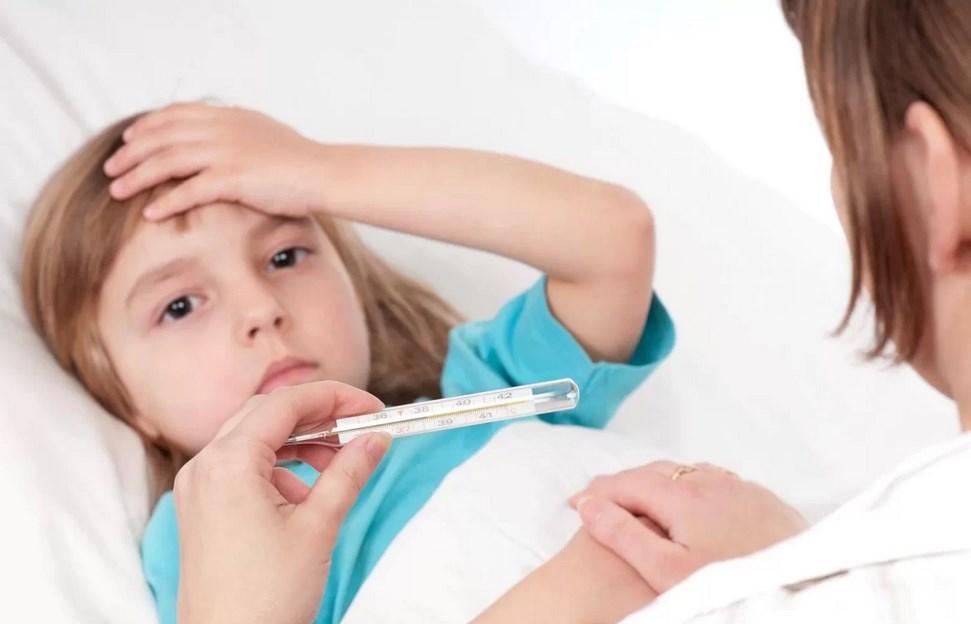The child vomits: what to do, how to help the baby
Even the most level-headed adults start to panic if a child starts vomiting. This condition can be supplemented by diarrhea and high fever, as well as general weakness. Not all parents, grandparents understand what to do if a child vomits. First of all, you need to set aside panic, because you won’t help the cause with feelings, and then determine the possible cause of vomiting and give the baby first aid. Do not forget that in some cases you may need urgent medical attention.
Causes of vomiting
A child may start to vomit for various reasons. A similar reaction of the body in a child occurs when:

- poisoning of various etiologies - low-grade foods, drugs, toxic plants or chemical compounds;
- infectious diseases - rotavirus, salmonellosis, botulism and others;
- elevated temperature may be one-time vomiting;
- strong emotional experiences, for example, when changing the children's team;
- diseases of the gastrointestinal tract;
- diabetes mellitus;
- overeating;
- inflammation of the appendix.
Most often, persistent nausea and vomiting occurs in children with poisoning from stale or low-quality foods and rotavirus. If the baby has reached the age of three and his condition is satisfactory, then you can help at home and watch the baby for several hours. When vomiting is very frequent and the patient's condition worsens every minute, you should immediately call a doctor. Only an experienced doctor will be able to diagnose and prescribe treatment.
The child can be very sick and vomit with inflammation of the appendix. In this case, there is acute pain in the right lower abdomen and fever. With such symptoms, you can not hesitate, the patient must be urgently hospitalized. The cause of vomiting can be eliminated exclusively by surgery, no medicines will help here.
How can you help a child with poisoning
If vomiting is caused by food poisoning, then before the doctor arrives, the baby can be helped by the following actions:

- Rinse the stomach if a child older than 7 years is sick. To do this, give a lot of water to drink, and then press on the root of the tongue. Washing is done even when the child has vomiting. The procedure is repeated until the escaping liquid is absolutely clean. It is strictly forbidden to wash the stomach at home for a young child. This will lead to rapid dehydration and deterioration.
- It is convenient to lay the child and provide him with absolute peace. The curtains on the windows are closed so that the sunlight does not irritate the eyes.
- Give any adsorbent to speed up the removal of toxic substances from the body.
- Solder the baby in small portions, but quite often. You can give water without gas, compotes, a decoction of wild rose or raisins. The drug Regidron replenishes the lost trace elements well, but many children begin to vomit again as soon as they take the first sip. If a child cannot swallow a solution of rehydron, do not force him, a strong decoction of rice with raisins will be an excellent substitute.
- After each bout of vomiting, the baby is allowed to rinse his mouth and throat so that the gastric juice does not corrode the mucous membrane.
If a high temperature has risen, you can give the child an antipyretic based on paracetamol. To normalize the temperature, medicines are used in tablets, since syrups and effervescent tablets contain flavors and dyes, which is not very good for an irritated stomach.
If vomiting is not caused by poisoning
When a child vomits violently, not due to poisoning, but for other reasons, help is provided depending on the situation.

- If vomiting is provoked by overeating, then it is necessary to provide the baby with complete rest and continue to give him portions, taking into account age. Until the condition is normalized, fatty and heavy foods are removed from the diet.
- When the disorder is provoked by a change in the team, then you need to talk with the caregiver or teacher so that the child is given more attention at first. Usually this is enough for the baby to attend kindergarten or school with pleasure.
- Vomiting due to chronic diseases occurs during an exacerbation. This usually happens in autumn and spring, when the body is weakened. This can be avoided if you undergo preventive treatment, which is agreed with your doctor.
- If vomiting occurs due to infectious diseases, then you need to show the child to an infectious disease specialist as soon as possible, who will prescribe a series of tests and, based on the results, prescribe an effective treatment.
- If vomiting and fever are accompanied by severe abdominal pain on the right, appendicitis can be suspected. Urgently call an ambulance or deliver the baby on their own to the nearest medical facility. Delay can threaten with peritonitis.
What not to do when vomiting
In order not to aggravate the situation with vomiting in a child:
- do not force the baby to eat;
- do not give any drugs other than adsorbents and antipyretics;
- do not give your child soda or milk;
- do not leave the baby alone even for a few minutes, he must be under the supervision of adults all the time;
- do not self-medicate and do not give antibiotics without a doctor's prescription.
 In addition, a strong rise in temperature in young children should not be allowed, as there may be convulsions. If the antipyretic does not help well, the legs and arms are wiped with a cotton cloth, which is dipped in cool water.
In addition, a strong rise in temperature in young children should not be allowed, as there may be convulsions. If the antipyretic does not help well, the legs and arms are wiped with a cotton cloth, which is dipped in cool water.
If the child's condition does not improve after a couple of hours or the sick child has not reached the age of three, you should immediately call a doctor.
Some parents, at the first vomiting urge in a child, begin to call relatives in a panic and find out what could have caused this condition. It is not worth doing this, since there is no benefit from such information. All people are individual and the causes of vomiting can be completely different. The correct diagnosis can only be made by a doctor after examination.







